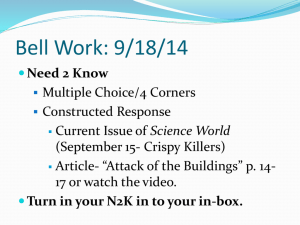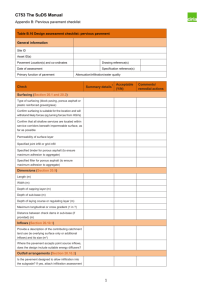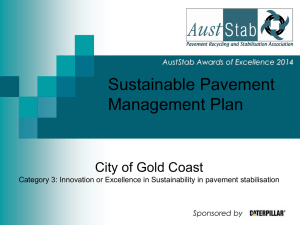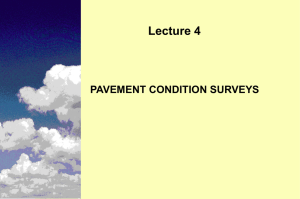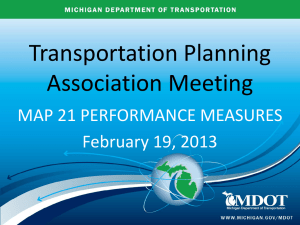Slide 1 - Indiana Association of County Commissioners
advertisement
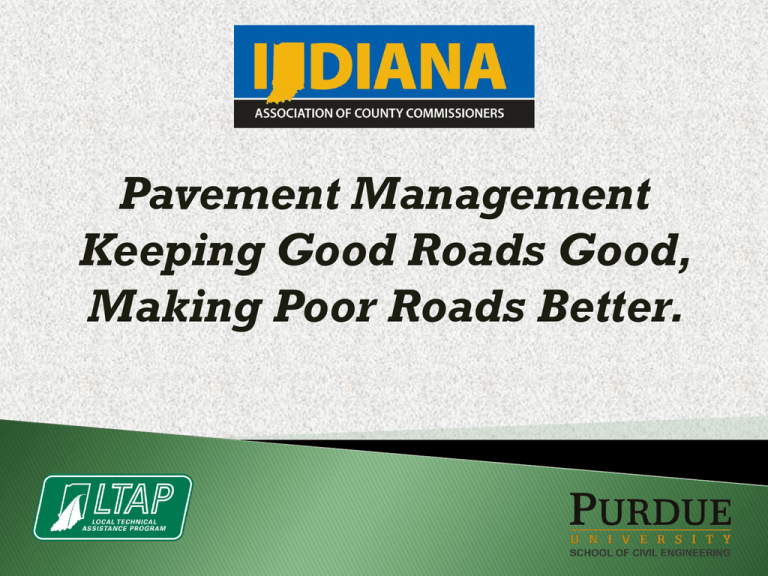
Pavement Management Keeping Good Roads Good, Making Poor Roads Better. Principals of Pavement Management. • Performance Based. • Based on Quality Information. • Policy Driven. • Analysis of Mix of Fixes, Options and Trade-off’s. • Accountability and Feedback. Benefits of Pavement Management. • Lower Long Term Preservation Costs. • Improved Service. • Improved Cost Effectiveness and Use of Available Resources. •Improved Credibility and Accountability and Decision Making. Applying the Principals of Pavement Management. 1. Assess Current Conditions 2. Create a Mix of Fixes, Estimate Costs and Funding 3. Predict Future Conditions, Develop Performance Measures 4. Conduct Tradeoff Analysis and Identify Candidate Projects. 5. Set Priorities and Develop Multi year program. 6. Report Results How Can Asset Management Help You? Transition Project Management (Moving Pieces) Network Management (Winning the Game!) Principals of Pavement Management. Assess Current Conditions ◦ Miles of Roadway, Condition Rating (Such as PASER) Create a Mix of Fixes ◦ Pavement Treatments Such as Reconstruction, Overlay, Seal Coat/Chip Seal, Crack Seal Predict Future Conditions ◦ Remaining Service Life (RSL) Conduct Trade-off Analysis ◦ Evaluate Impact of Different Fixes (Pavement Treatments) Set Priorities ◦ Consider Other Factors Such as Economic Development Report Results ◦ Provide Accountability and Transparency Operational Success. Applying the Right Fix In the Right Place At the Right Time Pavement Life Cycle. The Right Fix at the Right Time Can Extend the Pavement Life. • Seal Coat on a Good Road Will Extend the Pavement Remaining Service Life. Best Treatment Depends on Pavement Condition. Excellent (PASER 9 or 10) Good (PASER 7 or 8) Fair (PASER 4, 5 or 6) Poor (PASER 3 or Less) Mix of Fixes (Treatment Options). Example: Road Rehabiliation. Example: Road Rehabiliation. Group Pavement Management Activity. • Use Pavement Management Principals to Manage 100 Miles of Road. • $600,000 Budge. • Try to Maximize the Remaining Service Life.


